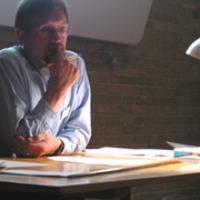Legal Theory and the Politics of Labor Law by David kettler

This study explores the Japanese adaptive appropriation of Weimar labor law theory as a prime fac... more This study explores the Japanese adaptive appropriation of Weimar labor law theory as a prime factor in institutionalizing the employment practices that culminate in the system of lifetime employment. Historically, the study uncovers connections between Izutaro Suehiro, "the father of Japanese labor law," and the most innovative current in Weimar labor law, represented by Hugo Sinzheimer, and it shows the formative importance of Suehiro's jurisprudence in subsequent labor law. It is argued, first, that labor law figures prominently in the constitution of Japanese employment practices; second, that Japanese industrial relations practices are best understood through a genealogical approach that gives full weight to the adaptive appropriation of Weimar labor law concepts and methods; and, third, that the lifetime employment system and related restrictions on dismissals are a function not only of judicial activism but also of advocacy lawyering and institutionalized encounters between employers and employees. The interrelationship of legal and non-legal elements is comprehended by a social theory of labor law, epitomized in a concept of the labor regime as the product of a constitutional political process involving employers, workers, and the courts.
Dated 1988. Comment on Welfare Rights in Canadian Cinstitution
Dated 1987. Law&Society Review 21:1
Dated 2002. Unlikely title says it all.
Dated 1989. Our thesis is that a "new unionism" must be the center piece of contemporary North A... more Dated 1989. Our thesis is that a "new unionism" must be the center piece of contemporary North American trade union strategy, a unionism that reconciles the movement's historical social objectives with emerging conditions of production by winning for itself a constructive role in industrial restructuring, conditional on a renewed capacity to promote industrial justice (Brody 1992).
Three principal features distinguish the contemporary state of research in industrial relations. ... more Three principal features distinguish the contemporary state of research in industrial relations. First, the unsettlement of fixed categories in the theoretical study of state and society turns the attention of political theorists towards this politically charged domain of dynamic order. Second, recent developments within the domain itself challenge the principal approaches whose competition has governed the discipline.
Political Theory Exercises: 1967-2014 by David kettler
D espite the postwar rise of behavioralism in political science, the Review gave surprising promi... more D espite the postwar rise of behavioralism in political science, the Review gave surprising prominence to traditional political theory during Harvey C. Mansfield's ten-year term as editor (1956)(1957)(1958)(1959)(1960)(1961)(1962)(1963)(1964)(1965), all the more striking for the prominence of Leo Strauss and his students during the first half of this period. This article considers several factors that help explain the surprising recognition given this subfield and its unexpected bargaining power.
dating back to 1971, a record of the state of some questions of continuing interest at that time
a 1969 article of some historical interest, harking back to the Caucus for a New Political Scienc... more a 1969 article of some historical interest, harking back to the Caucus for a New Political Science, if only as a measure of the distance evident in November 2014.











Uploads
Legal Theory and the Politics of Labor Law by David kettler
Political Theory Exercises: 1967-2014 by David kettler
This has never been my view. My own intermittent encounters with Ferguson’s writings, although they originated in a long forgotten hope of clarifying a theoretical moment in the pre-history of Marxism, have featured a series of proposals for finding an interpretative frame of reference able to comprehend the entire composite ‘document’ presented by the records of Ferguson’s career. If philosophy is taken seriously as a distinctive kind of structure of knowledge, it follows that we have to find ways of characterizing different kinds as well. Michael Freeden’s concept of ‘political ideology’ is an influential current example.2 The way stations on the route of my travels with Ferguson are marked by concepts such as Karl Mannheim’s ‘style of thought of intellectuals’,3 Sigurd Burckhardt’s ‘complementarity’,4 and Kenneth Burke’s ‘constitution’.5 In each of these settings, or so I argued, the conjunction of Ferguson’s forcefully stated reservations about commercial society and the cautious explication of his eclectic constructive model of moral theory could be explored and understood, thereby securing an appropriate assessment of Ferguson’s work.
The present fragmentary exercise is less ambitious. The idea is simply to interrogate some illustrative texts derived from the lecture notes of Ferguson’s Moral Philosophy class, with attention to his revisions in the period 1775-1785.6 The frame of reference now is ‘political education’7 as a distinct strand in the lectures, corresponding to the expressly under-theorized ‘history of the species’ with which he begins his course, as well as to the section on the ‘political science’ with which he ends, after an interval of some sixty lectures. In relation to the conjunction of a science of human nature (pneumatics) and moral science, which is covered in the interim, Ferguson treats the first of these sections as heuristic propaedeutic, and the latter as matter for the ‘professional’ education of ‘the statesman or warrior’. Together, they constitute the practical interdependence of history and judgment, manifestly reminiscent of the civic humanist method and distinct from his systemically linked pneumatics and moral science.
Contested Legacies
a program and conference
the project the 2002 conference publications project sequel 2008: first letters project home
Project Sequel
JOURNAL OF THE
INTERDISCIPLINARY CROSSROADS
Vol. 3, No. 1
April 2006
THEMATIC ISSUE:
The Limits of Exile
Editors
David Kettler
Zvi Ben-Dor
Table of Contents
'Introduction: The Limits of Exile'
DAVID KETTLER and ZVI BEN-DOR
'The Privilege of Pain: The Exile as Ethical Model in Max Aub, Francisco Ayala, and Edward Said'
SEBASTIAAN FABER
'On the Specificity of the Spanish Exile of 1939'
CARLOS BLANCO AGUINAGA
'Dennis Brutus and the Stations of Exile'
SIMON LEWIS
'"Exilforschung" as Mirror of the Changing Political Culture in Post-War-Germany'
ALFONS SÖLLNER
'European Exile for Russian Westernizers: The Logos'
ALEXANDER DMITRIEV
'Toward Understanding the Art of Modern Diasporic Ideology Making: The Eurasianist Mind-Mapping of the Imperial Homeland (1921–1934)'
IGOR MARTYNYUK
'Béla Balázs: From the Aesthetization of Community to the Communization of the Aesthetic'
TIBOR FRANK
'Invisible Exile: Iraqi Jews in Israel'
ZVI BEN-DOR
'Reflections on a Diremptive Experience and Four Theses on Origins and Exile'
PEYMAN VAHABZADEH
'Exile and Return: Forever Winter'
DAVID KETTLER
'W.G. Sebald and Exilic Memory – His Photographic Images of the Cosmogony of Exile and Restitution'
JERRY ZASLOVE
'Exile without Borders'
EDUARDO SUBIRATS
This is a study of the vicissitudes of the leftist (notably Communist and pro-Communist) construction of anti-Fascism as the meaning of both exile and return from Nazi camps after the Second World War. The primary documents are two films made in the Netherlands, both oriented on their face to the psychological damage inflicted by the camps. Drawing on recent historical scholarship of the reception of returnees in the Netherlands, it reconsiders the relationships between the “anti-Fascist” and “traumatic” renderings of this exile and return. The surprising conclusion is that the films can better be understood as bids in the meta-bargaining for recognition of the anti-Fascist exile-and-return than as a total displacement of this design; and this resolution of what appears on its face as a very hard case will be taken to reinforce a larger theoretical perspective, according to which exile and return are invariably constituted by modes of power-and-resistance, whether in the form of hegemonic imposition or negotiated provisional settlements, which are produced, sustained, and modified by diverse political forms of meta-bargaining.